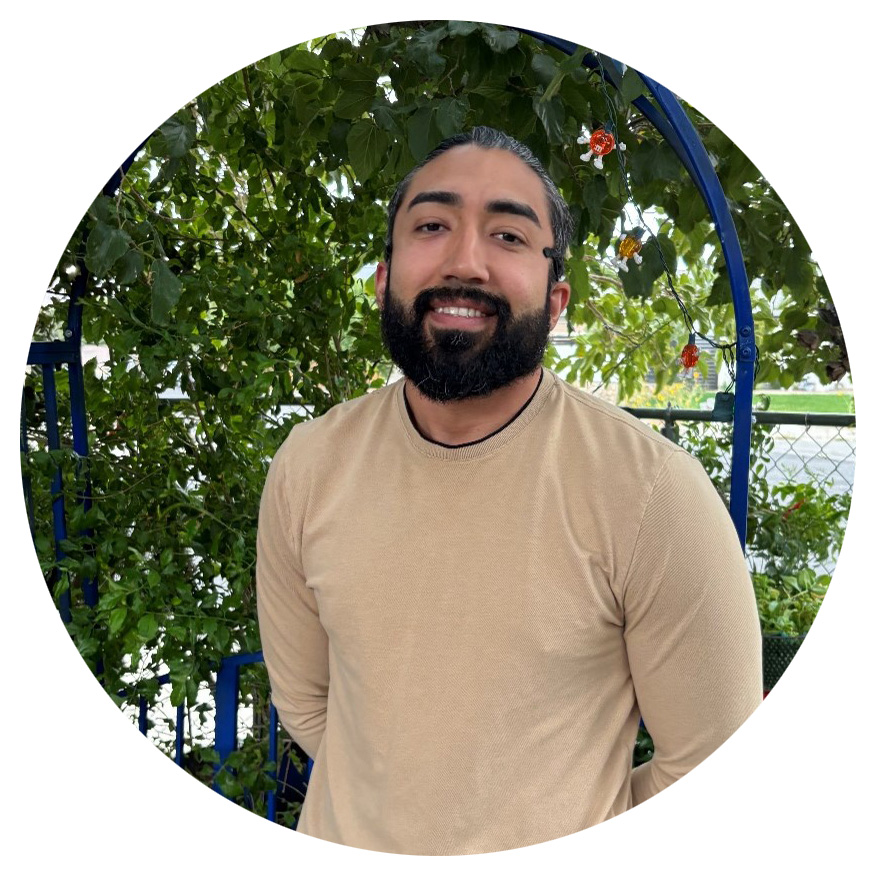One of the best ways to understand the impact of DOE Scholars is to hear from our past participants. Learn how U.S. Army veteran Agustin Martinez got the experience he needed for a career transition from the military to the private sector.
Federal Energy Management Program
December 9, 2024
As a DOE Scholar, Army veteran Agustin Martinez's work for the Department of the Interior gave him the Federal Government experience he needed to continue his engineering career.
Before Agustin Martinez began testing supersonic F-35 jets in Southern California, he was crunching numbers as a DOE Scholars intern in Washington, D.C., and Martinez credits that internship with the experience he needed to get where he is today.
Martinez grew up in Palmdale, California, known as "aerospace valley"—home to pet projects for aviation giants like Lockheed Martin, NASA, and the U.S. Air Force.
After graduating high school, Martinez joined the U.S. Army National Guard. "As a first-generation Mexican American, I wanted to serve the country that provided me with all the opportunities I had that got me where I am today," he said.
"I also wanted to test myself to see if I could be a soldier. And I knew that serving my country provided me with even more opportunities, like the GI Bill to pay for school and the VA Loan to buy a house."
Martinez's Army service included a year-long deployment to Afghanistan as a combat engineer. When he returned, he enrolled in community college, then in California State University for a bachelor's degree in mechanical engineering.
"Some people at school were telling me about the jobs at Edwards Air Force Base for the government," said Martinez. As he pondered how to make the transition from school to a job without any professional experience to put on his resume, a friend told him the U.S. Department of Energy (DOE) Scholars Program was looking for veterans, specifically in the engineering field. That led him to an internship in the program.
The Scholars Program introduces students or recent college graduates to entry- and mid-level research for DOE and other Federal agencies. FEMP caught up with Martinez recently to learn how his Scholars experience has shaped his career path.
What kind of work did you do during your Scholars internship?
At the Department of the Interior, I researched how they could enroll their offices across the country in renewable energy credit programs. That was my main focus, though I did also research options to upgrade their transportation fleet to electric or hydrogen-powered vehicles. All of this work was aimed at the Executive Order to reduce greenhouse gas emissions across all Federal operations. By the time I was done, I had created a spreadsheet of all the possible plans that could help them meet that Executive Order.
You helped the Federal Government tackle a huge undertaking to reduce greenhouse gas emissions. What did you gain from this experience?
It gave me experience and insight into how government works. That helped me with my resume writing to get a job in the government, because I understood what they were looking for, and what the day-to-day work of a government employee is like.
What kind of government job did you end up getting?
I worked as an avionics engineer for the U.S. Air Force for about three years, and then I got a job in the private sector as a flight test engineer for Modern Technology Solutions Incorporated. I'm a jack-of-all-trades type engineer; I like digging my hands into everything. I'm currently pursuing my private pilot's license.
So even though you didn't stay in a government job, would you say your DOE Scholars experience was still worthwhile?
Yes, it was a great experience. I think employers value it. When it comes to engineering, in general, an internship is always highly regarded. In every interview I had, they asked about the DOE Scholars internship and what I did. A lot of engineering companies work with the government very closely, so it was very useful experience.
Did you enjoy your DOE Scholars experience?
Yes, I really enjoyed getting to explore the Washington, D.C., area and visiting all those historic buildings. And I enjoyed learning on my own, too, because in school you have to follow a lesson plan, but in an internship you kind of have to make your own way.
The application period is now open for the next DOE Scholars cohort – learn more and apply.

